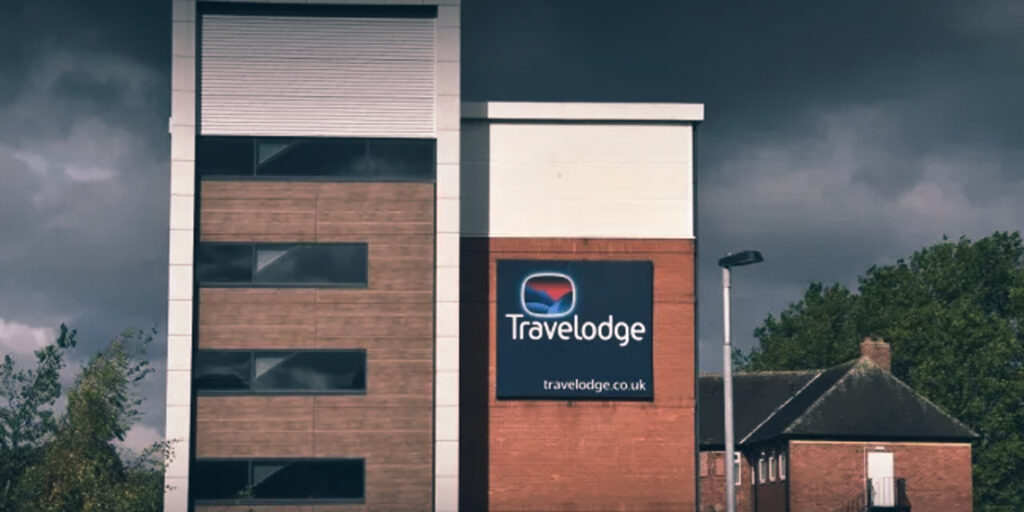Private companies are making millions of pounds from the UK’s worsening homelessness crisis, as councils struggle with soaring temporary accommodation costs due to a severe shortage of social housing.
Over the past five years, 166 councils across Britain have spent over £1.6 billion on temporary housing for people who have no other options, but this figure is likely even higher as only just over half of UK councils responded to freedom of information requests.
Local authorities are warning that their temporary accommodation budgets are unsustainable, with many now spending more than half of their total housing funds on emergency lets.
The situation has worsened due to a lack of affordable social housing, increasing evictions, and rising rents, forcing more people into council-funded emergency accommodation.
Temporary housing includes privately rented properties, hotels, B&Bs, converted office blocks, hostels, and even repurposed shipping containers.
Unlike social housing, which has regulated rent prices set by the Treasury, private firms can charge councils whatever they choose, driving up costs.
Some councils have admitted that providers have them “over a barrel”, leaving them little choice but to accept excessive rental charges.
The majority of the top 20 providers of temporary accommodation in Britain are private companies, profiting from the crisis.
Notting Hill Genesis (NHG), a housing association, received the highest payments from councils, totalling £84.8 million between 2019 and 2024. However, private firms including Theori (£69.1m), Elliot Leigh Properties (£51.3m), and Finefair (£50.5m) also made significant sums.
Budget hotel chain Travelodge, which is regularly used to house homeless families, received £26.1 million over the five-year period.
Investigations have found that many families housed in Travelodge hotels are forced to live in a single room, with no cooking or laundry facilities, often for extended periods due to a lack of alternative housing.
London councils are the biggest spenders on temporary accommodation, with Westminster City Council paying out £177.2 million, followed by Enfield Council at £168.2 million and Kensington and Chelsea Council at £121.1 million.
Outside of London, Bristol City Council has been the most reliant on emergency housing, spending £53 million over five years.
Councillor Adam Hug, speaking for the Local Government Association, warned that councils are being overwhelmed by the growing demand for homelessness support, with increasing temporary accommodation costs putting “unsustainable pressure” on public finances.
The crisis has been referred to as ‘hidden homelessness’, as thousands of people live out of sight in substandard and unregulated accommodation.
Unlike privately rented or social housing, temporary housing is not regulated, meaning no minimum living standards are required. Reports of damp, mould, rat infestations, and dangerous conditions are widespread, leaving many families in unsuitable and unsafe environments.
Shocking figures reveal that 74 children have died while living in temporary accommodation, with 58 of these deaths involving babies under the age of one.
Many of these tragic cases were linked to poor living conditions, including exposure to mould, damp, and extreme cold.
Siobhain McDonagh, Labour MP for Mitcham and Morden, described the situation as a national scandal, highlighting that the majority of taxpayer money spent on temporary housing is “badly spent”, with private firms profiting while families suffer.
Homelessness charities and campaigners, including The Magpie Project and Shared Health Foundation, are calling for Ofsted-style inspections for temporary accommodation, alongside new laws to regulate landlords, enforce housing standards, and control rent prices for emergency housing.
Dr Laura Neilson, CEO of Shared Health Foundation, emphasised the urgent need for regulation to ensure basic standards of accommodation and transparency in how public funds are spent.
The government has acknowledged the crisis, admitting that the extraordinary cost of temporary accommodation is unsustainable for councils and taxpayers.
A spokesperson for the Ministry of Housing, Communities and Local Government stated that the only way to tackle the issue is to increase the supply of affordable housing while addressing the root causes of homelessness, such as ‘no fault’ evictions.
The Renters’ Rights Bill, currently in development, aims to set national standards for temporary housing and implement the Decent Homes Standard, ensuring that tenants in emergency accommodation are not left to suffer in unregulated, poor-quality housing.
With homelessness at record levels and more than 123,100 households in England currently living in temporary accommodation—a 16.3% increase in just one year—the crisis shows no signs of easing.
The number of children living in emergency housing has risen to 159,380, putting further pressure on councils to find sustainable, long-term solutions.
Unless urgent reforms are introduced, thousands of families will remain trapped in overcrowded, unsuitable housing, while private companies continue to profit from the housing crisis at the expense of taxpayers.


